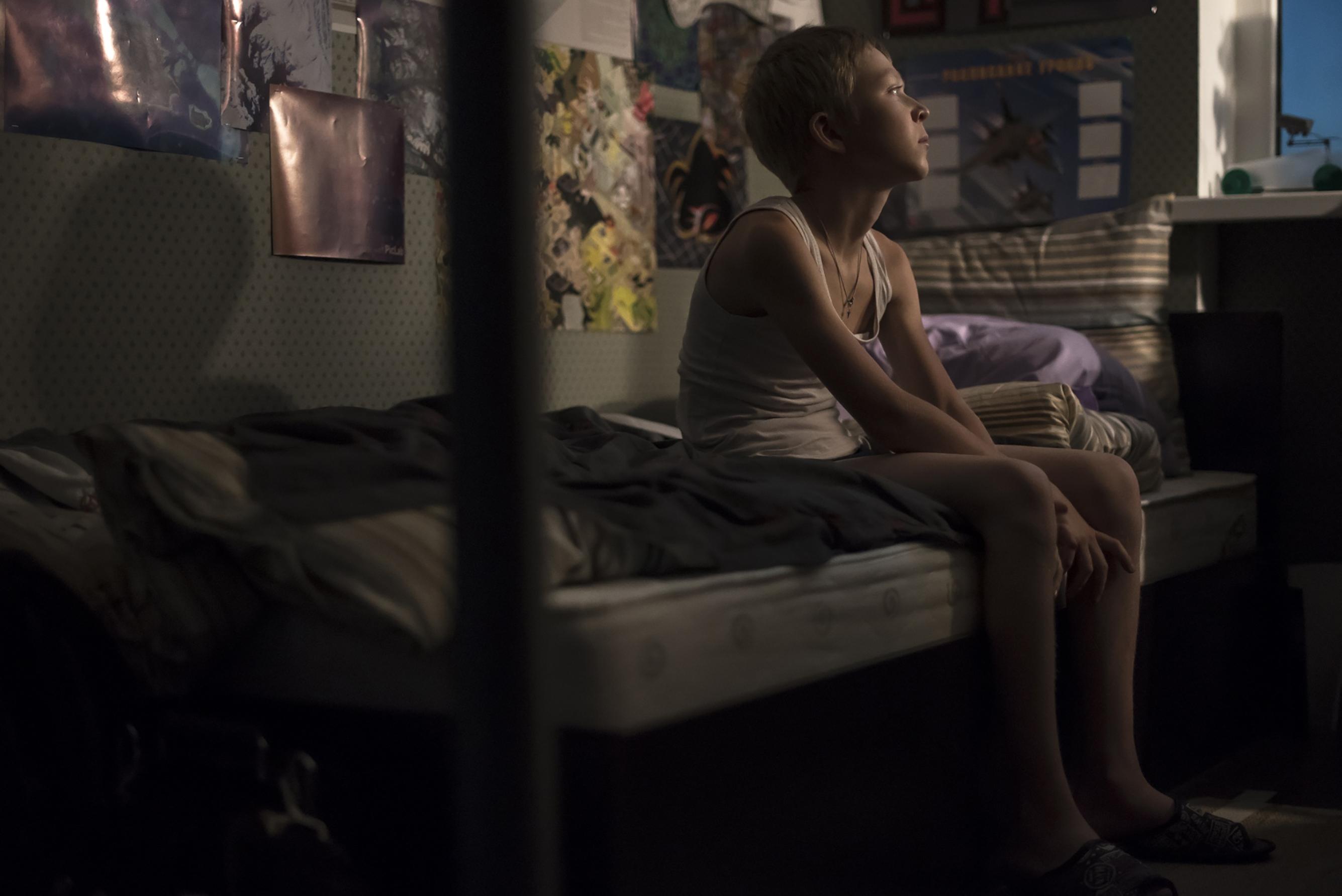
CANNES FILM FESTIVAL 2017
'Loveless' is a quiet triumph
By Emily Bice, Daily Arts Writer
Pyramide Films

“Lovelessness. No one should live that way.”
This perfectly summarizes Russian director Andrey Zvyagintsev’s (“Leviathan”) latest film, conveniently titled “Loveless.” In competition for the Palme d’Or at the Cannes Film Festival, the film explores the hard consequences of a society in an empathy crisis. It follows Zhenya (Maryana Spivak, “Glukhar”) and Boris (Alexey Rozin, “Leviathan”), a Moscow couple in the midst of a bitter, angry divorce. Both are eager to exit the marriage as quickly as possible and move on with their new respective lovers. There’s just one problem. And that is their 12-year-old son, Alexey.
Boris and Zhenya make no attempt to hide their disdain and resentment toward their son. An accident that Zhenya regrets not aborting, they plan to send him to an orphanage when the divorce finalizes. For Boris and Zhenya, there is no room in their new lives for someone they don’t love — even if that someone is their son.
It isn’t until Alexey’s teacher calls Zhenya, informing her that he hasn’t been to school in two days, that the parents realize their child is missing. What follows is a harrowing, frustrating and unending search for the boy. Up until the search for Alexey begins, the title “Loveless” appears to refer to Boris and Zhenya’s marriage and their treatment of Alexey. As the search unfolds, however, it becomes clear that the familial life of Boris and Zhenya is not the only thing lacking love. It is society as a whole. Zvyagintsev presents an alarmingly apathetic society, offering a unique portrait into life in Russia.
The difference between protocol for a missing child in America versus Russia is shocking. In America, police are on the job the moment a child goes missing, working tirelessly to find him or her. In “Loveless,” the Russian police inform Zhenya that to engage in a search for Alexey will involve “a lot of paperwork” and “bureaucracy” and that she is better off to employ an external volunteer group. The officer does not worry about the whereabouts or well-being of Alexey, either, concluding that he likely ran away and might turn up in 7-10 days. He does not seem surprised that Zhenya and Boris took two days to notice their son was missing. He does not seem to care Alexey is missing. There is no sleep lost by the police officer over returning the missing child to his parents. He doesn’t even help search.
Contrasting the apathetic police officer is the Coordinator (Alexey Fateev, “Metro”), who runs the volunteer search and rescue organization. He and his team work tirelessly to find Alexey, searching the forest, interviewing the boy’s only friend, posting flyers, visiting morgues and hospitals. No stone is left unturned. Zhenya and Boris gradually become more invested in finding their son as they follow the instructions of the Coordinator. As time passes, it becomes harder and more painful to follow the team. They are pushing, fighting to find him — and the effort seems fruitless.
The film is a cinematic treasure. It is perfectly scored and visually arresting. It tugs at the emotions of its viewers and forces them to question what it means, fundamentally, to lack both ethos and pathos. The pace is slow and calculated, and it manipulates the viewer into investing everything they have into the search for Alexey. Near the end of the film, Zhenya and Boris visit the morgue to identify if a body brought in was their son. By this point it had been an hour of searching and fighting to find Alexey. In the morgue, it was clear that there were only two options, and neither were good: Alexey was either dead or still missing. No matter which outcome, he was probably gone forever. When the mortician pulled back the sheet to reveal answers the entire film has been spent searching for, the emotional gravity of it all hit.
“Loveless” is a uniquely wonderful film. It subverts expectations of how people react to a crisis and creates a crisis of empathy. Though unclear if it will be picked up for distribution in the U.S., I am hopeful it will be. The film is a quiet triumph. While the piece may be about a lack of love, there is no shortage of appreciation from its viewers.